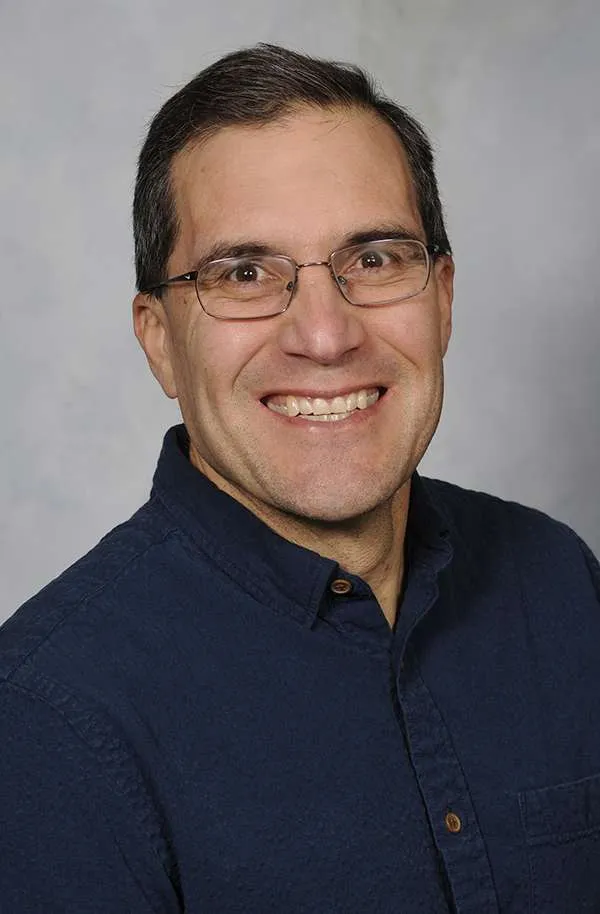Automated systems score high in 15-year study
MANHATTAN, Kan. – A Kansas State University agricultural economist is taking a step-back approach while carving out a new way of looking at the returns of precision agricultural technology.
“As an economist, I (normally) look at things like profitability – dollars and cents – and whether the benefits outweigh the costs,” said Terry Griffin, a precision agriculture economist at K-State. “But sometimes economists may take a step further and look at the optimization of utility, or satisfaction, which means we need to bring in a few things other than dollars and cents.”
Griffin is working with LaVona Traywick, an associate professor of physical therapy at the Arkansas Colleges of Health Education, to look at how the adoption of precision agriculture technologies adds to the quality of life of farmers or farm equipment operators.
“When we talk about quality of life today, what people are talking about is perceived physical and mental health,” Traywick said. “(Many) factors play into whether we increased quality of life by having a technology, or whether we possibly decreased quality of life.”
Griffin and Traywick have factored in quality of life (benefits) and human capital (cost) scores for various precision agriculture technologies. A recent presentation is available online.
On the high end of their score sheet are technologies that provide automated guidance, such as GPS systems that can drive equipment through a farm field. The two researchers say the quality of life score for automated technologies is a 9 on a scale of 10, while the human capital score is 2.
“Those are high scores for both,” Griffin said. “The human capital part reflects the investment that a person has to put in to make this work. And that’s fairly low.”
On the other end, yield monitors, variable rate applicators and precision soil sampling scored low on quality of life, and high on human capital investment.
“Some of the technologies out there take a lot more human capital to use them,” Traywick said. “Based on our research, we project that things that are easier to use and take less human capital are going to be adopted more quickly and readily than those that require a lot of human capital.”
While age can factor in, “there is not a straight association between the person’s age and whether they’ve adopted the new technologies or not,” Traywick said. “There are other factors that go into it, such as whether they are a single proprietor of the farm, or whether they are working with someone from a different generation.”
Griffin and Traywick have studied the topic for more than 15 years, including conversations with farmers and observing uses of technology over long periods of time.
Their study is currently summarized in a report available online from the K-State Department of Agricultural Economics, titled Ag Tech Adoption and Generational Characteristics: Benefit-Cost Analysis Revisited.
“We’re continuing to collect data,” Griffin said. “Some of the most interesting data we are collecting is not necessarily measurements, but anecdotal stories. We’re trying to build this into a larger story of the benefits and costs of precision ag technology.”
-30-
FOR PRINT PUBLICATIONS: Links used in this story
K-State Department of Agricultural Economics, https://agmanager.info
Arkansas Colleges of Health Education, https://acheedu.org
Ag Tech Adoption and Generational Characteristics, agmanager.info/management-finance/precision-agriculture/ag-tech-adoption-and-generational-characteristics-benefit
K State Research and Extension is a short name for the Kansas State University Agricultural Experiment Station and Cooperative Extension Service, a program designed to generate and distribute useful knowledge for the well being of Kansans. Supported by county, state, federal and private funds, the program has county extension offices, experiment fields, area extension offices and regional research centers statewide. Its headquarters is on the K State campus in Manhattan. For more information, visit www.ksre.ksu.edu. K-State Research and Extension is an equal opportunity provider and employer.
Story by:
Pat Melgares
785-532-1160
melgares@ksu.edu
For more information:
Terry Griffin
785-532-6702
twgriffin@ksu.edu



